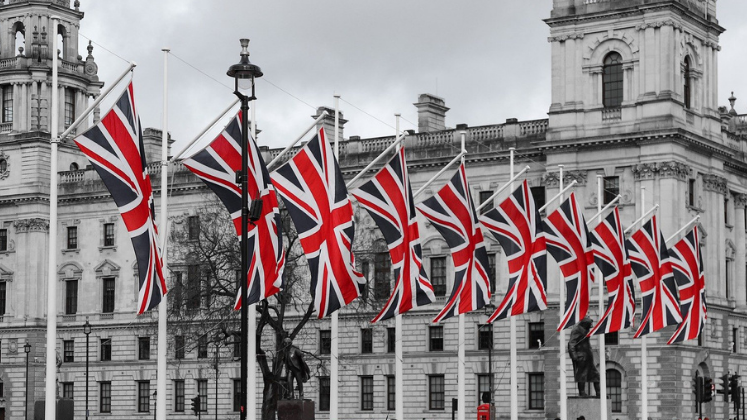 Essential reading for students who wish to study the British political system and have limited familiarity with it, Duncan Watts’ new edition provides a comprehensive examination of British political culture. Chrysa Lamprinakou notes that although the text is not overly analytical, it is solid background reading for all who are interested in the politics of Britain.
Essential reading for students who wish to study the British political system and have limited familiarity with it, Duncan Watts’ new edition provides a comprehensive examination of British political culture. Chrysa Lamprinakou notes that although the text is not overly analytical, it is solid background reading for all who are interested in the politics of Britain.
British Government and Politics: A Comparative Guide. Duncan Watts. Second Edition. Edinburgh University Press. February 2012.
Duncan Watts’ British Government and Politics: A Comparative Guide is a new addition to the abundant literature on the functioning of the British political system, providing a concise introduction to basic principles of constitutional issues, political representation, elected government, non-elected political actors and multi-level governance. The book is tailored to meet the requirements mainly of first year undergraduate students with limited knowledge of the British political life. That is mainly for two reasons: first, the book provides information rather than critically approaching each topic and second, it does not cover other important actors and processes such as the media and policy analysis.
Each of the eleven chapters is structured in a way that helps students to get the most out reading it. In each chapter there is a ‘what you should have learned’ section that is very useful and extremely helpful to students who are new to the study of politics in general and/or British politics in particular. The use of case studies provides up to date information and place British politics in a comparative context. It succeeds in giving a clear account of the main institutions and players of the British political system in a comprehensive manner. Most importantly, the book’s second edition is up-to-date discussing the latest developments in British politics, including the 2010 general election and constitutional reform under Cameron’s premiership. The glossary of terms is another helpful section addressing the needs of students to familiarise themselves with the main political concepts and thus, stimulating their interest and understanding. And although not particularly critical in nature, the book does give the opportunity to students to adopt a critical perspective by presenting opposing angles of the debate (e.g. on constitutional reform, parliament).
The first chapter of the book focuses on the context of British politics. The author discusses the social basis and historical background of the British political tradition whilst putting into context the dynamics that influenced the development of the British political system over time. Providing a comprehensive examination of the social characteristics is crucial to understanding the British political culture and development of the British political system. Until a few decades ago, the economic and political development of Britain was tailored upon a ‘relatively homogeneous’ and ‘obsessed with social class’ society. However, in the post-war years ‘British society has been transformed’, mainly as a result of social mobility and social diversity. As Watts indicates while ‘in the 1960’s, two thirds of the population were categorised as working class and a third middle class, today the two categories are broadly equal’ while ‘successive bouts of immigration have modified the national character and shaped our national development’. According to the 2001 Census data the proportion of non-white population in Britain has risen to 7.9%.
The topic of the legislature is covered in the third chapter. The discussion of the House of Lords and the House of Commons is detailed and provides an excellent source of information on the Houses membership, role, effectiveness and representation. This is one of the more detailed, well-presented and comprehensive chapters of the book. It provides an up to date and balanced account of the debate on the role of the British parliament whilst the case studies allow for a deeper understanding of the role and effectiveness of British parliament. Particular attention is paid on the roles and effectiveness of the House of Lords especially since the 1997 reforms. Whilst the Lords have become more assertive and willing to challenge and even resist government legislation (for example, the prevention of Terrorism Bill in 2005), a further reformed and representative House of Lords will would further enhance the effectiveness of British parliament as a whole.
The next chapter covers the British executive focusing on the traditional debate about Prime ministerial versus Cabinet government and the most recent debate about presidentialisation. Following Foley’s argument in the book The British Presidency, Duncan Watts points to the main arguments supporting the assertion that the British premiership has become increasingly presidential. The Blair premiership qualifies as an excellent case study indicative of the detection of presidential qualities as well as of political vulnerability. As Watts points out a presidential ‘approach to government tends to raise expectations to a level that [British] leaders find difficult to satisfy’. The comparison between the British Prime Minister and US President deftly expounds the differences between the two leading to the conclusion that the ‘Prime Minister has become presidential, but in a uniquely British way’.
The topic of elections is raised in chapter nine which provides the students with information on electoral systems, voting behaviour, referendums exemplifying the theoretical context by the case studies of France and the USA. While drawing upon the main features of election campaigns, the author discusses the core characteristics of the 2010 general election campaigns and puts the first televised debates in the history of the UK into a comparative context. The British political context is dominated by elections not only at the national but at regional, local and European levels. In addition to elections, a number of referendums at local, sub-national and national levels have also taken place in the last two decades. Despite however, the increased number of electoral contests under various electoral systems (AMS, STV, FPTP, PR) recent elections have seen low turnout rates and a change in voting behaviour. As a result, the 2010 general election led to the first UK coalition government while in May 2011 the first ever SNP government was elected in Scotland.
The book could provide an essential reading for students who wish to study the British political system and have limited familiarity with it. The British political system is changing rapidly and in a radical way and the book could also be used as a background reading for all who are interested in the politics of Britain.
——————————————————————————————-
Chrysa Lamprinakou is a Teaching Fellow in British Politics. She holds PhD and MRes degrees in Politics from Brunel University, a MA degree in Communications Policy Studies from City University and a BA (Hons) degree in Politics from the University of Essex. Her PhD research focused on developing an alternative conceptual framework of party campaigning integrating the traditional theories of party organisation with the modern approaches of political communication and marketing. Dr. Lamprinakou is a specialist on British and Greek political parties. Her main research interests include election campaigns and electoral behaviour, leadership campaigns, political communication and marketing. Currently, she is working on a programme of publications on her doctoral work. Read more reviews by Chrysa.








1 Comments